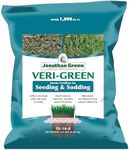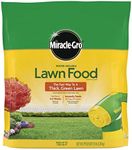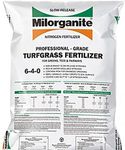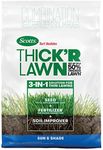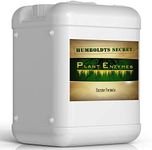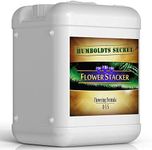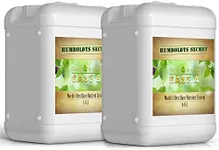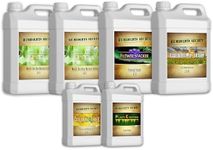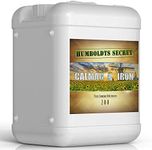Buying Guide for the Best Fertilizer For Fescue
Choosing the right fertilizer for your fescue grass is crucial to ensure it grows healthy, lush, and green. Fescue is a cool-season grass that requires specific nutrients to thrive, especially during its peak growing seasons in the fall and spring. Understanding the key specifications of fertilizers will help you make an informed decision that meets the needs of your lawn.N-P-K RatioThe N-P-K ratio represents the percentage of nitrogen (N), phosphorus (P), and potassium (K) in the fertilizer. Nitrogen promotes lush, green growth; phosphorus supports root development; and potassium enhances overall plant health and disease resistance. For fescue, a balanced ratio like 10-10-10 or a higher nitrogen ratio like 20-5-10 is often recommended. If your lawn needs a boost in green growth, opt for a higher nitrogen content. For new lawns or overseeding, a balanced ratio is ideal.
Slow-Release vs. Quick-ReleaseSlow-release fertilizers gradually release nutrients over time, providing a steady supply to the grass and reducing the risk of burning. Quick-release fertilizers deliver nutrients immediately but can lead to rapid growth and potential burning if over-applied. For fescue, slow-release fertilizers are generally preferred as they provide consistent nourishment and require less frequent application. However, if you need a quick green-up, a quick-release fertilizer can be used sparingly.
Organic vs. SyntheticOrganic fertilizers are made from natural materials and improve soil health by adding organic matter. They release nutrients slowly and are environmentally friendly. Synthetic fertilizers are chemically manufactured and provide nutrients quickly. They are often more concentrated and can be tailored to specific nutrient needs. If you prefer an eco-friendly option and are willing to wait for gradual results, choose organic fertilizers. For immediate nutrient availability and precise nutrient control, synthetic fertilizers are a good choice.
Application MethodFertilizers can be applied using granular or liquid forms. Granular fertilizers are easy to spread and provide a slow, steady release of nutrients. Liquid fertilizers are quickly absorbed by the grass and can be applied using a hose-end sprayer. For fescue, granular fertilizers are often preferred for their ease of use and long-lasting effects. Liquid fertilizers can be used for a quick nutrient boost or to address specific deficiencies.
Seasonal ConsiderationsFescue grass has different nutrient needs depending on the season. In the fall, focus on fertilizers with higher nitrogen content to promote growth and recovery from summer stress. In the spring, balanced fertilizers help support new growth and root development. Avoid fertilizing in the heat of summer, as this can stress the grass. Tailor your fertilizer choice to the specific needs of your fescue lawn during each season for optimal results.





